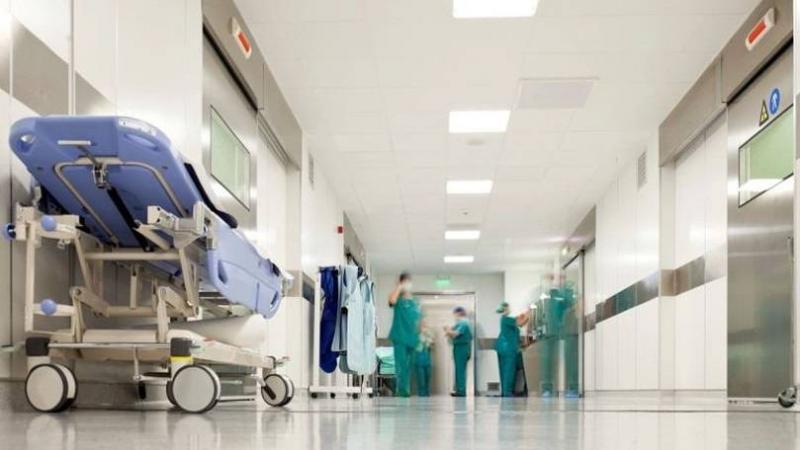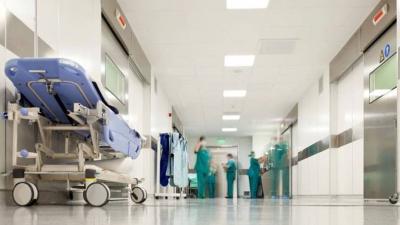Like a snowball rolling down a hill, crises are affecting everyone, hitting the healthcare sector, which recently entered a two-day strike alongside private hospitals. It’s not unlikely that government hospitals will follow, as the financial crisis within them is extremely difficult, leaving them "on life support" waiting for a lifeline in vain. Inside the Al-Najda Al-Shaabiya Hospital in Nabatiyeh, nursing operations have halted, with only the emergency department functioning, specifically for urgent cases. Everyone understands that the pressure on hospitals only harms the citizens themselves, which is why those in charge are trying to raise their voices in stages, hoping their pleas will be heard.
No one hides the dire state of hospitals; they have entered a critical phase, living "day by day," as the high costs of medical supplies, salaries of staff, medications, and more push towards the collapse of an ailing healthcare system. This will continue unless a miracle happens and support is provided, though this possibility is not considered by anyone. What they wish for is a trickle of support, even if limited, to keep the sector functioning.
The recent strike by private hospitals is a significant "hit," a "slap" to the completely absent government regarding this sector, leaving it to battle the crises alone. Even financial transfers are delayed, and banks refuse to disburse them before taking 80% of the amount, which has completely exhausted hospitals' capabilities.
In the emergency department, Mohammed waited to secure a hip implant for his mother, who had an accident; the cost of the device is $2,500 in cash. He remarks on the 80% drop in patient visits, noting that patients only go to hospitals at the "last breath," trying to avoid the high treatment costs beyond their capacity. Even a simple doctor's visit and a few medications in the emergency department have become unaffordable for him. What helped Mohammed is that his brother is abroad, but there are patients unable to secure devices after the authorities have washed their hands of the issue.
Dr. Al-Shafi' Fauani, the hospital director, confirms the seriousness of the health situation, announcing that the hospital complied with the two-day strike but kept the emergency department open only for urgent cases: accidents, heart attacks, domestic incidents, etc. However, elective surgeries and lighter treatments have been halted for two days. He insists that pressuring citizens doesn’t help, and the circumstances are no longer conducive to health recovery. Nevertheless, he sees that private hospitals are enduring a significant crisis, comparing their situation to an intensive care unit, clearly indicating the magnitude of the disaster.
What Fauani demands, like all hospitals, is financial support and the payment of financial dues to maintain their resilience, along with the release of dues owed to hospitals and doctors held up in banks, without forgetting the impact of the economic situation on hospitals. He underscores that the movement is a warning message, "and it's the most we can do since we do not resort to blocking roads or burning tires; we hope the government hears our cries for help and supports us, instead of throwing us into the depths of the crisis."
Even private hospitals have gone on strike, as the financial crisis has deeply affected them, incapacitating their ability to recover and forcing them to be unable to meet all their needs. In Nabatiyeh and the south, most private hospitals adhered to the strike, halting all elective procedures and admissions as direct pressure on a ministry that seems to be absent.
For nearly a year and a half, the hospital crisis has been worsening, entering a race with the dollar which has "destroyed" the entire sector. Unless healthcare transforms into "fresh dollars," a not unlikely scenario amid the accelerating collapse after the elections, yesterday’s strike might be the first step towards "dollarization," albeit indirectly. According to information, the financial crisis within these institutions can only be confronted with "dollarization," especially since all supplies and medical equipment are purchased at market prices, making it unsurprising that private hospitals might demand this in their next strike to keep themselves alive.
Healthcare will undoubtedly become reserved for the wealthy only, as insurance providers are out of service, forcing citizens to incur huge amounts for treating even trivial cases. A simple outpatient procedure can cost 5 million Lebanese pounds a day, not to mention medications and the physician's fee, which are now paid outside of the bill. All of this foreshadows a serious health catastrophe, promising no relief, and it's no wonder if a patient decides to forgo the hospital, settling for alternative medications or perhaps herbal remedies, as financial capabilities have drained them just as they have exhausted the hospitals.




